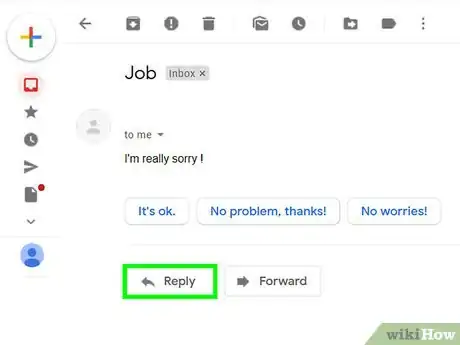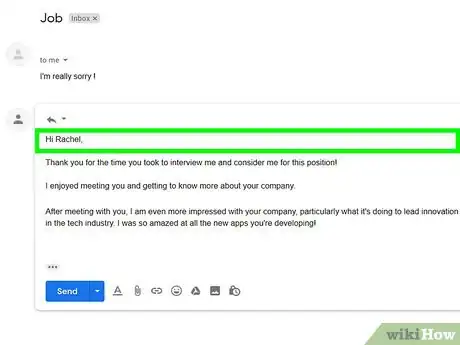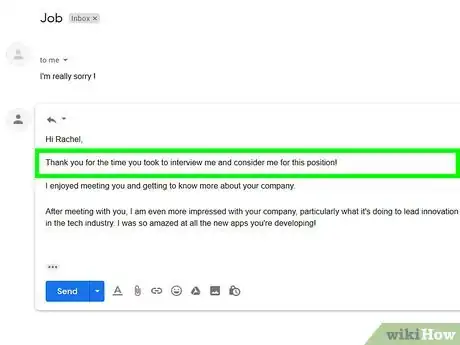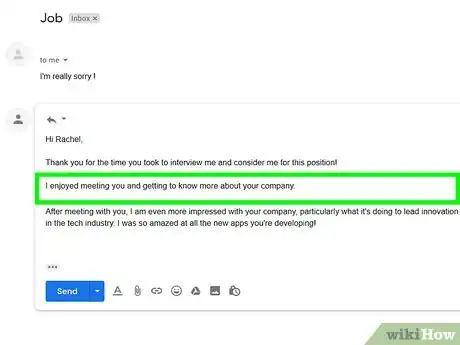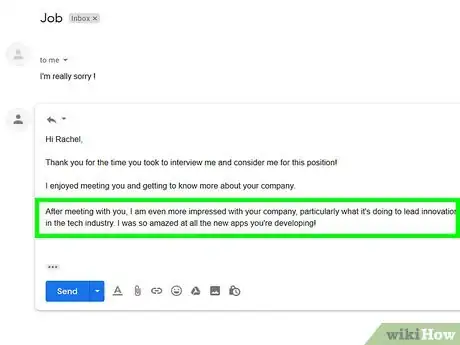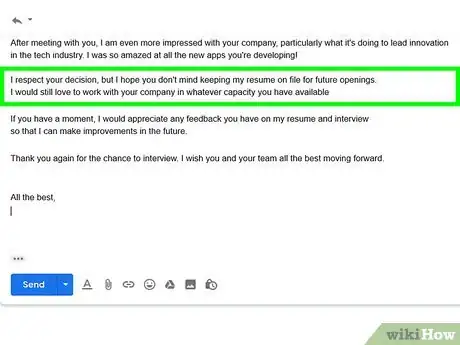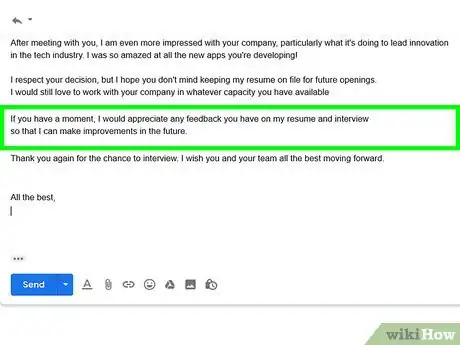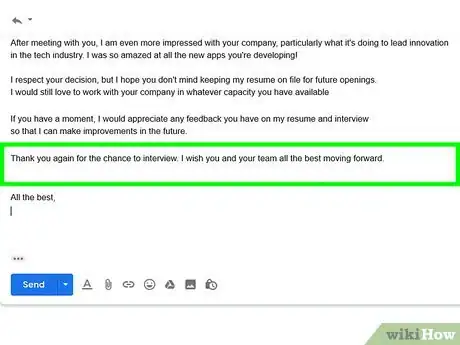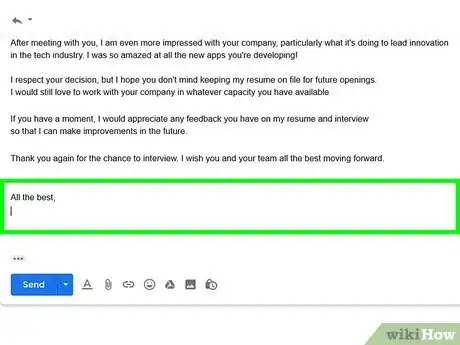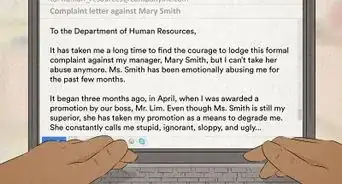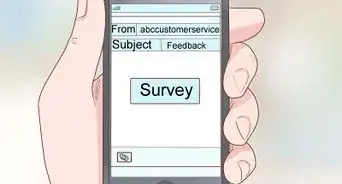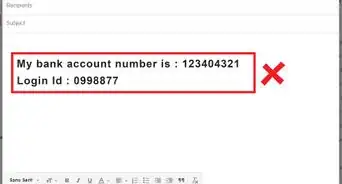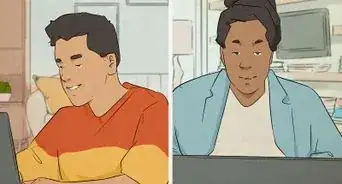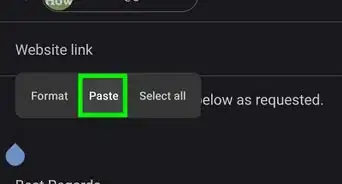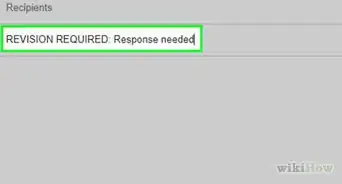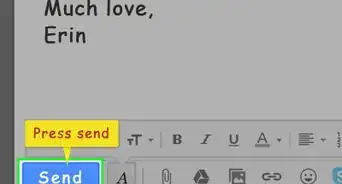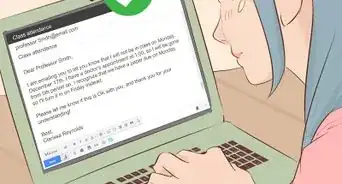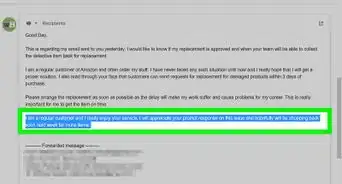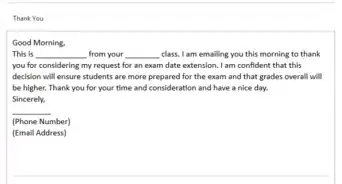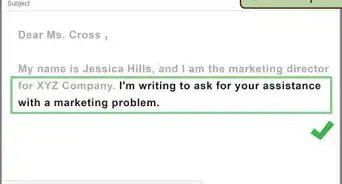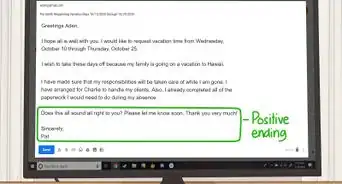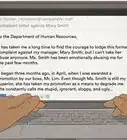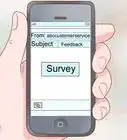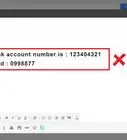This article was co-authored by Michael McCutcheon, PhD. Dr. Michael McCutcheon is a career coach, psychologist, and award-winning public speaker who specializes in procrastination elimination, goal achievement, and increasing life satisfaction. With a background as a counseling psychologist, he guides clients toward becoming more aware of their desires and anxieties to break old patterns, create new habits, and achieve life-changing results. He also helps clients improve organization skills, embark on a new career, get promoted, get admitted into graduate schools, and transition from school to the working world. He is a published author and lecturer in graduate psychology courses at New York University (NYU), a position he has twice won the Teaching Award (2014 & 2019). His work has appeared in the press as a lifestyle and career expert for The Washington Post/The Associated Press, The New York Post, Scholastic, Lifehacker, and The Coca-Cola Company. He has served as a contributing writer for Out Magazine and featured panelist on National Public Radio (NPR).
There are 12 references cited in this article, which can be found at the bottom of the page.
This article has been viewed 21,691 times.
Sending a response to a rejection email can help maintain the good impression the company has of you. By expressing your gratitude and responding positively, you show that you can take rejection in stride, a good quality in any candidate. If you'd like, you can also ask for feedback so you can do better on the next job you apply for.
Steps
Providing a Positive Context
-
1Reply as soon as possible. When you get a rejection email, it can be disheartening, and you may not want to reply for a day or two. However, replying quickly can be to your benefit. Try to respond within a couple of hours to make a good impression.[1]
- For instance, the person they decided to hire may not work out, and by replying quickly, you've made yourself stand out among the other candidates.
-
2Mimic the rejection letter's greeting style. That is, if they use "Dear Mrs. Jones," address your letter in a similar way. Alternatively, if they go with something less formal, such as "Hi Rachel," you can open your response email in a similar way.[2]Advertisement
-
3Thank the interviewer for their time and consideration. Gratitude goes a long way, especially when you want to stay in a company's good graces. By thanking them for their consideration, you show you can accept criticism and rejection with grace.[3]
- For instance, you might say, "Thank you for the time you took to interview me and consider me for this position."
-
4Let the interviewer know how much you enjoyed meeting them. Much like a follow-up email after an interview, a response to a rejection email is a good time to reiterate how much you enjoyed getting to spend time with the person. Tell them you were happy you got to know them and the company a little better.[4]
- For example, you might say, "I enjoyed meeting you and getting to know more about your company."
-
5Say something positive about the company,. You always want to leave things on a positive note, and if you can be specific, you're likely to leave a positive image of yourself. Point to something that you talked about in your interview to show you were paying attention.[5]
- You could write something like, "After meeting with you, I am even more impressed with your company, particularly what it's doing to lead innovation in the tech industry. I was so amazed at all the new apps you're developing!"
Asking for Feedback and Ending the Email
-
1Request that the company keep you in mind in the future. It doesn't hurt to ask the interviewer to keep your resume on file.[6] Often, if another job pops up that's a better fit for you, they'll reach out and ask you to interview for the position.[7]
- You might say, "I respect your decision, but I hope you don't mind keeping my resume on file for future openings. I would still love to work with your company in whatever capacity you have available."
-
2Ask for feedback politely. If you want to know why you didn't get the job, it's perfectly okay to ask for feedback from the interviewer.[8] In fact, most expect it, but they don't have the time to automatically send feedback to every candidate. Just make sure to phrase your request politely.[9]
- For example, you could write, "If you have a moment, I would appreciate any feedback you have on my resume and interview so that I can make improvements in the future."
-
3Wish the interviewer the best moving forward. Once again, you want to end on a positive note so that you leave a good impression. Tell them you hope everything works out well with their new hire and the team they've chosen moving forward.[10]
- For instance, you might say, "Thank you again for the chance to interview. I wish you and your team all the best moving forward."
-
4Sign the email with a short closing. Pick something professional and positive, such as "All the best," or "Yours." Then, add your name at the bottom of the email to close it. You can also include your contact information at the bottom if you prefer.[11]
Expert Q&A
Did you know you can get expert answers for this article?
Unlock expert answers by supporting wikiHow
-
QuestionHow do you deal with the disappointment of not getting a job?
 Michael McCutcheon, PhDDr. Michael McCutcheon is a career coach, psychologist, and award-winning public speaker who specializes in procrastination elimination, goal achievement, and increasing life satisfaction. With a background as a counseling psychologist, he guides clients toward becoming more aware of their desires and anxieties to break old patterns, create new habits, and achieve life-changing results. He also helps clients improve organization skills, embark on a new career, get promoted, get admitted into graduate schools, and transition from school to the working world. He is a published author and lecturer in graduate psychology courses at New York University (NYU), a position he has twice won the Teaching Award (2014 & 2019). His work has appeared in the press as a lifestyle and career expert for The Washington Post/The Associated Press, The New York Post, Scholastic, Lifehacker, and The Coca-Cola Company. He has served as a contributing writer for Out Magazine and featured panelist on National Public Radio (NPR).
Michael McCutcheon, PhDDr. Michael McCutcheon is a career coach, psychologist, and award-winning public speaker who specializes in procrastination elimination, goal achievement, and increasing life satisfaction. With a background as a counseling psychologist, he guides clients toward becoming more aware of their desires and anxieties to break old patterns, create new habits, and achieve life-changing results. He also helps clients improve organization skills, embark on a new career, get promoted, get admitted into graduate schools, and transition from school to the working world. He is a published author and lecturer in graduate psychology courses at New York University (NYU), a position he has twice won the Teaching Award (2014 & 2019). His work has appeared in the press as a lifestyle and career expert for The Washington Post/The Associated Press, The New York Post, Scholastic, Lifehacker, and The Coca-Cola Company. He has served as a contributing writer for Out Magazine and featured panelist on National Public Radio (NPR).
Career Coach & Psychologist
-
QuestionIs it okay to send a followup to a rejection email?
 Michael McCutcheon, PhDDr. Michael McCutcheon is a career coach, psychologist, and award-winning public speaker who specializes in procrastination elimination, goal achievement, and increasing life satisfaction. With a background as a counseling psychologist, he guides clients toward becoming more aware of their desires and anxieties to break old patterns, create new habits, and achieve life-changing results. He also helps clients improve organization skills, embark on a new career, get promoted, get admitted into graduate schools, and transition from school to the working world. He is a published author and lecturer in graduate psychology courses at New York University (NYU), a position he has twice won the Teaching Award (2014 & 2019). His work has appeared in the press as a lifestyle and career expert for The Washington Post/The Associated Press, The New York Post, Scholastic, Lifehacker, and The Coca-Cola Company. He has served as a contributing writer for Out Magazine and featured panelist on National Public Radio (NPR).
Michael McCutcheon, PhDDr. Michael McCutcheon is a career coach, psychologist, and award-winning public speaker who specializes in procrastination elimination, goal achievement, and increasing life satisfaction. With a background as a counseling psychologist, he guides clients toward becoming more aware of their desires and anxieties to break old patterns, create new habits, and achieve life-changing results. He also helps clients improve organization skills, embark on a new career, get promoted, get admitted into graduate schools, and transition from school to the working world. He is a published author and lecturer in graduate psychology courses at New York University (NYU), a position he has twice won the Teaching Award (2014 & 2019). His work has appeared in the press as a lifestyle and career expert for The Washington Post/The Associated Press, The New York Post, Scholastic, Lifehacker, and The Coca-Cola Company. He has served as a contributing writer for Out Magazine and featured panelist on National Public Radio (NPR).
Career Coach & Psychologist
Warnings
- Avoid responding negatively to a rejection email. Even if you felt like you were the best fit for the job, it's best to just thank the interviewer for the opportunity and move on. An angry response will get you nowhere, as you're only burning bridges. If you can't say anything nice in a response email, don't respond at all.[13]⧼thumbs_response⧽
References
- ↑ https://www.businessinsider.com/how-to-respond-when-you-didnt-get-the-job-2016-1
- ↑ https://www.businessinsider.com/how-to-respond-when-you-didnt-get-the-job-2016-1
- ↑ https://www.forbes.com/sites/lizryan/2018/03/07/whats-the-best-way-to-respond-to-a-rejection-letter/#4a47ba0f6c7f
- ↑ https://www.askamanager.org/2012/12/responding-graciously-to-a-job-rejection.html
- ↑ https://www.forbes.com/sites/lizryan/2018/03/07/whats-the-best-way-to-respond-to-a-rejection-letter/#4a47ba0f6c7f
- ↑ Michael McCutcheon, PhD. Career Coach & Psychologist. Expert Interview. 15 February 2021.
- ↑ https://www.businessinsider.com/how-to-respond-when-you-didnt-get-the-job-2016-1
- ↑ Michael McCutcheon, PhD. Career Coach & Psychologist. Expert Interview. 15 February 2021.
- ↑ https://www.askamanager.org/2012/12/responding-graciously-to-a-job-rejection.html
- ↑ https://www.askamanager.org/2012/12/responding-graciously-to-a-job-rejection.html
- ↑ https://www.askamanager.org/2012/12/responding-graciously-to-a-job-rejection.html
- ↑ https://www.forbes.com/sites/lizryan/2018/03/07/whats-the-best-way-to-respond-to-a-rejection-letter/#4a47ba0f6c7f
- ↑ https://www.askamanager.org/2013/10/how-not-to-respond-to-a-job-rejection.html
